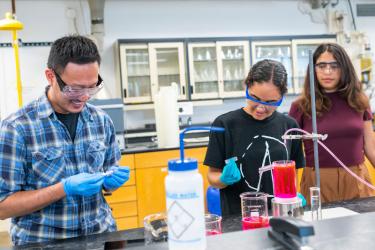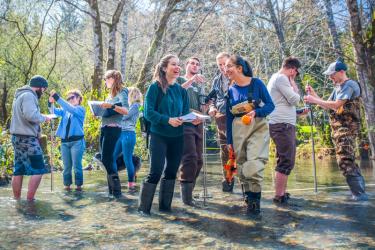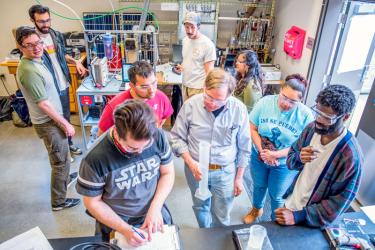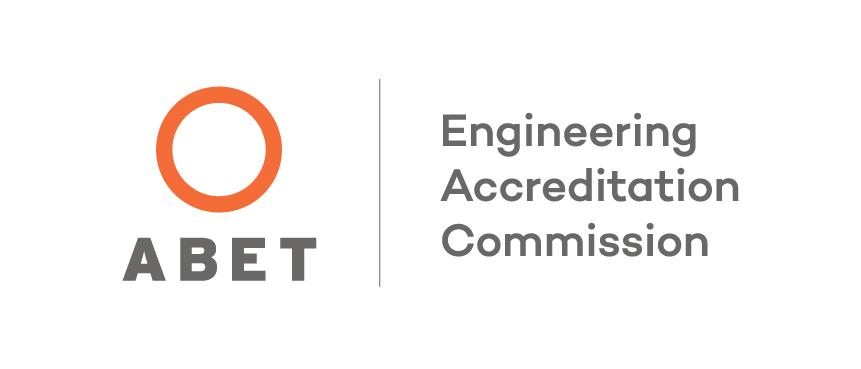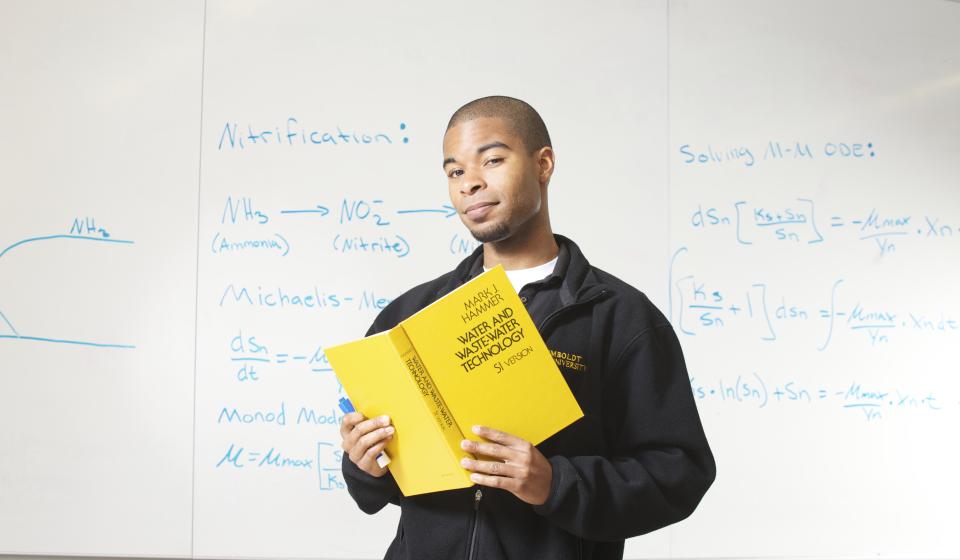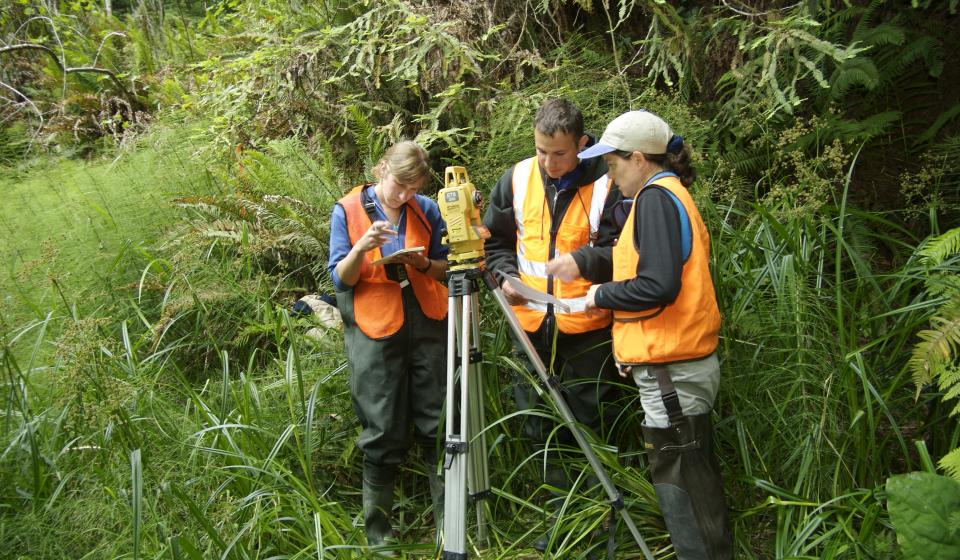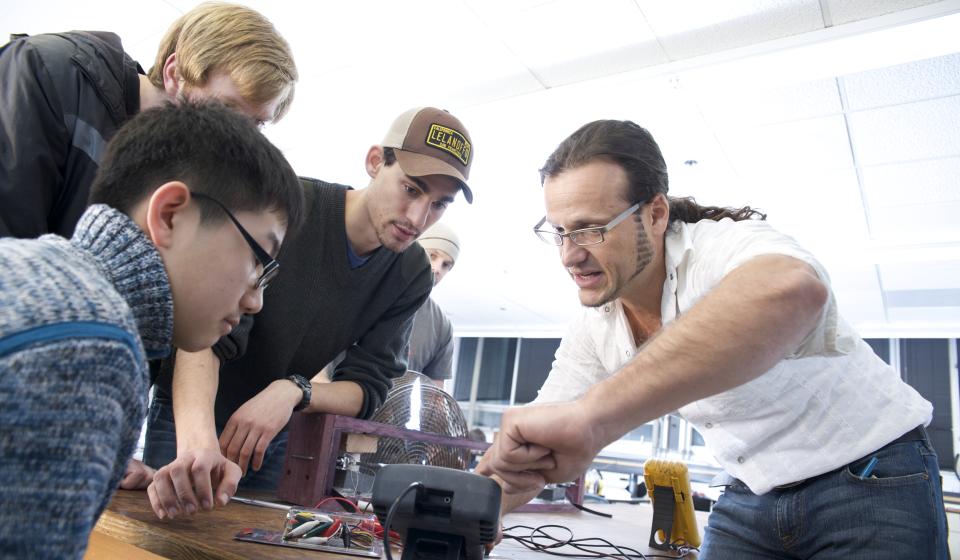Course Selection Advice
Deciding when to take each course in the ERE program can be a daunting task. Be sure to meet with your ERE faculty advisor each semester for useful advice. In addition, many students use the flow chart to assist in deciding what course to take. Advice from previous students is also very helpful. Lastly, the following list gives course selection advice that faculty advisors will generally give students. The list is separated into sections pertinent to the number of ERE units that you have completed. ERE units include all ERE, Math, Physics, Chemistry and Biology courses.
- Challenging four year graduation plan
- Students with 0-30 engineering units
- Students with 30-60 engineering units
- Students with 60 or more engineering units
- Advice for students considering graduate school
Challenging Four Year Graduation Plan
The ERE faculty has put together a suggested schedule for completing the ERE program in 4 years. The 4-year plan* assumes you are ready to enroll in MATH 109 - Calculus I. Please note that many students take longer than 4 years, as they are not able to successfully complete the suggested number of units each semester. Many students must work outside of school, have family responsibilities, or for some other reason must take a lower unit load.
*All subject specific courses in the 4-year plan at the link above are described in the Humboldt Office of Registrar's Course Descriptions section for each respective subject here.
Advice for Students with 0-30 Engineering Units
- The ERE Curriculum meets the following General Education (GE) requirements:
- Lower Division Area A Critical Thinking - So ERE students are not required to take Logic, Critical Thinking, Critical Writing, etc.
- Lower Division Area A Communications - So ERE students are not required to take COMM 100.
- One Lower Division Area D elective - So ERE students need only take the Institutions courses.
- Area E GE Human Integration - So ERE students are not required to an Area E GE (400) course.
- Additional GE Considerations:
- Engineering majors need only one Area C Upper Division GE course and one Area D Upper Division GE course of the Upper Division GE Component.
- You can plan your GE courses to simultaneously fulfill your Diversity and Common Ground (DCG) requirements by choosing lower division Area C or upper division Area C or D courses that are also Diversity and Common Ground courses. For example: Women, Culture, History (WS 107) fulfills 3 units of the Area C Lower Division requirements, while also counting for 3 units of the Diversity and Common Ground (Domestic) requirements. And Global Awareness (GEOG 300) fulfills 3 units of the Area D Upper Division requirements, while also counting for 3 units of the Diversity and Common Ground (Non-Domestic) requirements. For complete and current information on Area C and D courses that may double count for DCG requirements, see listings in the Humboldt catalog.
- Take a math class every semester ("Every semester you don't take math is a semester you'll be here longer." ---- Professor Elizabeth Eschenbach).
- Start the engineering science series as soon as you can if you want to avoid hold-ups in your progress through the curriculum. Start ENGR 210 Statics as soon as you have completed the math prerequisite, then plan on taking ENGR 211, then ENGR 331 and then ENGR 333 in subsequent semesters.
- Consider a minor in another area. Environmental Resources Engineering graduates have earned minors in areas including Mathematics, Chemistry, Geographic Information Systems, Language, and Environmental Ethics.
- Work with your faculty advisor to develop your individual graduation plan.
- Consider summer school. Most community colleges offer the equivalent of the following courses: MATH 109,110,210; CHEM 109,110; BIO 105; PHYX 211(formerly PHYX 110). Check assist.org to see if a certain California Community Collge course will automatically articulate to Humboldt ERE. If you cannot find your course on this list, be sure to check with the ERE department chair to see if a given summer school course will count toward your ERE degree.
Advice for Students with 30-60 Engineering Units
- Start the computational methods series (Computational Methods I, II, and III - ENGR 225, ENGR 325, ENGR 326) after you have completed Statics (ENGR 210). You should take Dynamics (ENGR 211) and Comp Methods I (ENGR 225) at the same time. In ENGR 326 you will design your own project, and you need to have enough engineering background (e.g., ENGR 331-Thermodynamics completed, and enrolled in ENGR 333-Fluid Mechanics) to have an excellent project.
- Complete Fluid Mechanics (ENGR 333) and the Computational Methods III (ENGR 326) as early as possible. Most of the 400-level courses require the skills and knowledge learned in these classes or their prerequisites.
- If you are interested in energy, plan to take General Physics II (PHYX 211 formerly PHYX 110) early and to take Electronics & Electronic Instrumentation (PHYX 315) as your Science Elective. PHYX 315 is a required prerequisite for Renewable Energy Power Systems (ENGR 475), and is strongly recommended for the other energy design courses (ENGR 471, ENGR 473, ENGR 477). However, if you do not plan on taking energy design courses and you need some flexibility in your schedule, you can take PHYX211( formerly PHYX 110) later in your program.
- It is important to always keep an up-to-date résumé. Services and workshops are available through the Academic and Career Advising Center, and ask a professor to review your resume. A completed résumé is one less obstacle when looking for an internship or job.
Advice for Students with 60 or more Engineering Units
Planning for graduation
You should checking that you have fulfilled all the requirements to graduate. To graduate you need to make sure that you have fulfilled three requirements:
- Graduation Contract. Your Graduation Contract should be turned in about a year before you plan to graduate. Your Graduation Contract is due no later than two weeks after the beginning of the semester. The Graduation Contract is a list of the courses you have completed, the grades received in those courses, and the courses you intend to take to complete your B.S. Degree in Environmental Resources Engineering.
- Application for Graduation. Your Graduation Contract should be turned in at the same time as your Application for Graduation, a simple form available in the Registrar's Office.
- Graduation Writing and Proficiency Exam. In order to graduate you must pass the Graduation Writing and Proficiency Exam (GWPE). The exam is given twice in the Fall semester and twice in the Spring semester. Students are eligible as soon as they have completed English 100 and reached Junior status. The exam involves writing two forty-five minute essays.
Fundamentals of Engineering (FE) Exam
Engineering registration (also known as engineer licensing) in the United States is an examination process by which a state's board of engineering licensing determines and certifies that you have achieved a minimum level of competence. The first exam in this process is the Fundamentals of Engineering (FE) Exam (also known as the Engineer-in-Training (EIT) Exam). The FE exam covers basic subjects from mathematics, physics, chemistry and engineering. The exam has recently transitioned to a computer-based exam, and information is available from the National Council of Examiners for Engineering and Surveying (NCEES). Students passing the exam receive their EIT license, the first step in attaining a Professional Engineering license. Keep the following in mind as you prepare for the exam:
- Having an EIT license can help you get your first job and completing the series of professional engineering licensing exams often results in a pay raise.
- You should take the test 6 months before or after graduating.
- FE Exam study manuals and study assistance are often available at the National Council of Examiners for Engineering and Surveying website.
- The ERE faculty are happy to assist students reviewing for the FE Exam. We are offering an FE Seminar. Our program has a very high pass rate compared to the rest of California.
Advice for Students Considering Graduate School
You should know why you want to attend graduate school. A masters degree increases your career opportunities, provides you with additional credentials and can allow you to specialize in a field of interest. A doctorate will allow you to further specialize. With a doctorate you can consider a career in research or in academia, where you will teach and do research.
There are two types of Masters Programs - Research Based and Project Based.
- A research based masters develops your research skills and prepares you for pursuing a doctorate. It is a good way to test if you like doing research. A disadvantage of a research based masters is that the research may have an indefinite time line. Therefore, it might take you longer than you expect to finish.
- A project based masters will have a well defined project and a more definite time line, but will not provide you with research experience.
Most firms do not prefer a research based masters versus a project based masters, but some doctorate programs may prefer a research based masters degree.
The degrees associated with the research and project based programs vary. The names mean different things at different universities. Some of the potential degrees are:
- Master of Engineering
- Master of Science
- Doctor of Philosophy
- Doctor of Engineering
- Doctor of Science
If you are considering graduate school keep the following in mind.
- Keep your GPA high, especially in your 400-level courses.
- Consider reading a book on preparing for graduate school. Many people find the graduate school experience quite different than undergraduate.
- If you think you may be interested in participating in research, try to get involved with an ERE faculty research project or a summer undergraduate research program, such as the one through the National Science Foundation.
- If you intend to get a Ph.D. in Engineering, take more mathematics and chemistry as an undergraduate. These courses will only help you.
Graduate School Planning and Scheduling
Once you decide you want to go to graduate school do a literature search, pick an area of study, and then ask faculty to help you find programs and people in that area. Identify people with whom you would like to work. Are they doing research that interests you? Visit the Academic and Career Advising Center, for further information on searching for graduate schools.
Applications for graduate schools are generally due from December 15 through March 1. Applications require a series of steps.
- Take the GRE exam. Many schools require both the General and the Engineering Subject Exam. The General Exam is very similar to the SAT. Be sure to study for the GRE; you can improve you score significantly.
- You will need Letters of Recommendation. Be sure to give your references plenty of time to complete these for you. Remind them a few days before they are due. A detailed explaination of how students should approach their ERE instructors to request a letter of recommendation, and what to do once the request has been made can be found here.
- Your application process will likely require a "Statement of Interest". Get help from a professor to create a concise and well formed statement.
Once accepted to a graduate school, visit prospective schools, if possible, to meet with faculty AND graduate students. Acceptance letters and coordinated visits usually occur in March and April.
How to Apply
So environmental resources engineering sounds interesting, but you are still not sure if Humboldt is right for you? Explore what Humboldt has to offer to both freshman and transfer students.
Paperwork
For paperwork and forms such as major and minor contracts, course planning guides, semester schedules, course rotations, office hours and more, visit our forms page!



